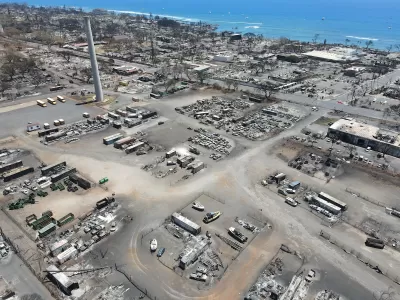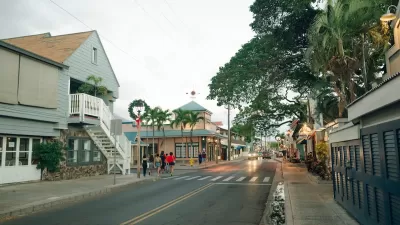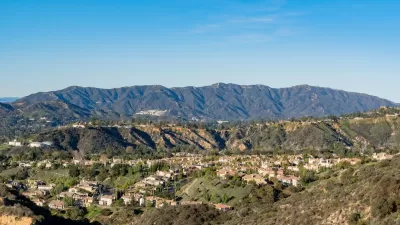Congress has approved federal funding to support Maui’s wildfire recovery, including housing, economic development, and infrastructure improvements while fostering long-term community resilience and preparedness.

In a significant move to aid Maui’s recovery from the devastating 2023 wildfires, Congress has approved $2.1 billion in federal funding as part of a short-term spending bill. As reported by Catherine Cluett Pactol, the allocation includes $1.6 billion in Community Development Block Grant Disaster Recovery (CDBG-DR) funds for housing and $480 million for economic development, small business support, and critical infrastructure improvements such as roads and water systems. U.S. Senator Brian Schatz heralded the bill’s passage, calling it a long-awaited milestone for the community and a crucial step toward rebuilding.
Maui County Mayor Richard Bissen expressed gratitude for the federal relief, emphasizing its importance in addressing the needs of the most vulnerable wildfire survivors and investing in resilience projects to better prepare the community for future challenges. Strict federal guidelines will govern the allocation and use of these funds, requiring comprehensive financial oversight and reporting by Maui County. To ensure proper management, a dedicated program office has been established within the county’s Office of Recovery.
This funding represents a pivotal opportunity to not only rebuild homes and businesses but also to fortify Maui’s infrastructure against future disasters. Mayor Bissen and local leaders view the funding as an essential component of their long-term vision for a stronger, more resilient Maui. With the President’s signature on the bill imminent, this landmark investment is set to drive forward recovery efforts and enhance the island’s preparedness for years to come.
FULL STORY: $2.1B in federal funding will help in Maui's wildfire recovery efforts

Alabama: Trump Terminates Settlements for Black Communities Harmed By Raw Sewage
Trump deemed the landmark civil rights agreement “illegal DEI and environmental justice policy.”

Planetizen Federal Action Tracker
A weekly monitor of how Trump’s orders and actions are impacting planners and planning in America.

Why Should We Subsidize Public Transportation?
Many public transit agencies face financial stress due to rising costs, declining fare revenue, and declining subsidies. Transit advocates must provide a strong business case for increasing public transit funding.

Understanding Road Diets
An explainer from Momentum highlights the advantages of reducing vehicle lanes in favor of more bike, transit, and pedestrian infrastructure.

New California Law Regulates Warehouse Pollution
A new law tightens building and emissions regulations for large distribution warehouses to mitigate air pollution and traffic in surrounding communities.

Phoenix Announces Opening Date for Light Rail Extension
The South Central extension will connect South Phoenix to downtown and other major hubs starting on June 7.
Urban Design for Planners 1: Software Tools
This six-course series explores essential urban design concepts using open source software and equips planners with the tools they need to participate fully in the urban design process.
Planning for Universal Design
Learn the tools for implementing Universal Design in planning regulations.
Caltrans
Smith Gee Studio
Institute for Housing and Urban Development Studies (IHS)
City of Grandview
Harvard GSD Executive Education
Toledo-Lucas County Plan Commissions
Salt Lake City
NYU Wagner Graduate School of Public Service





























